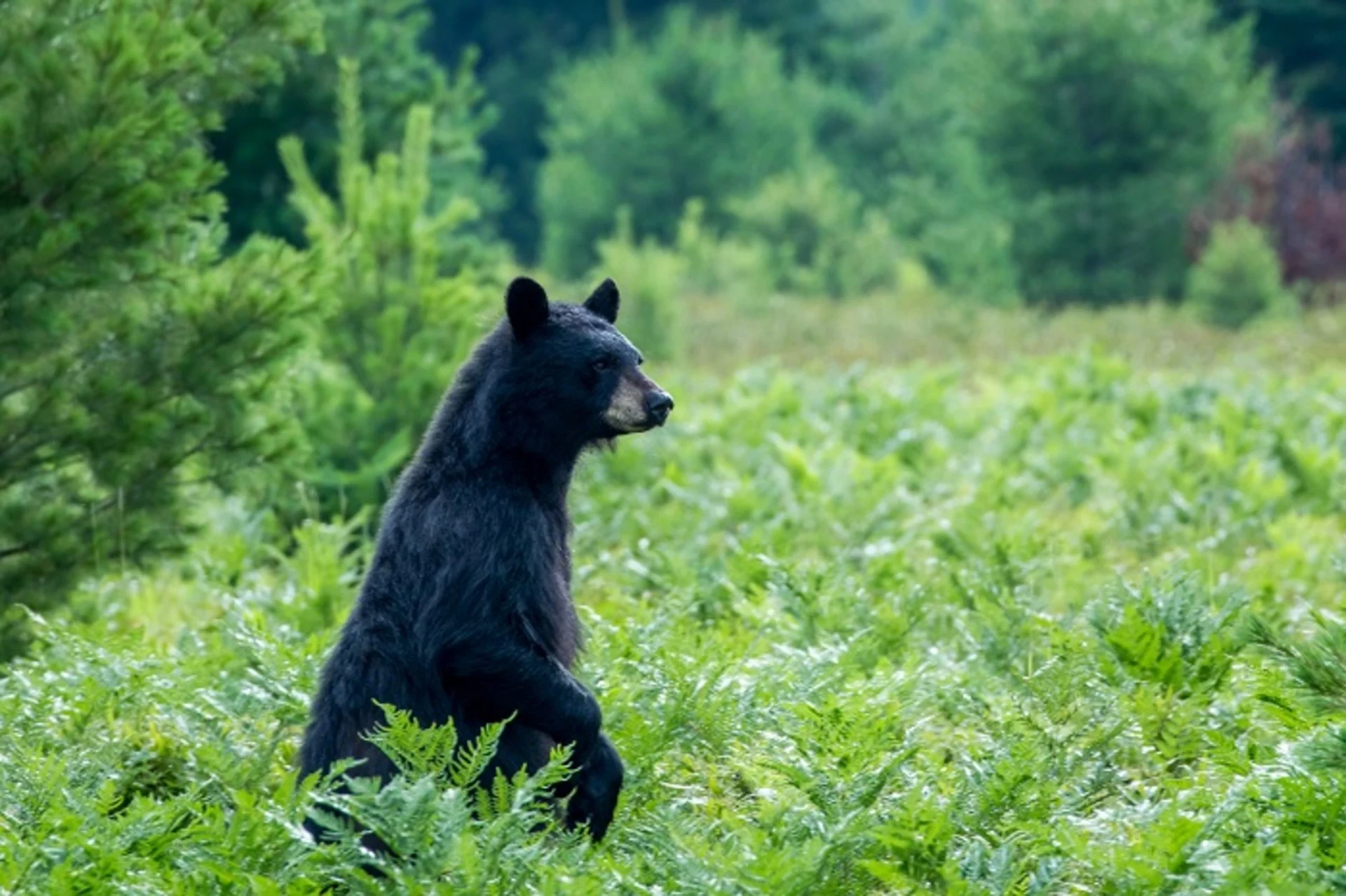
Black bears are hungry in spring. Here are some safety tips
Officials say black bears are coming out of hibernation, and they're hungry.
Case in point: The black bear in the video above, which recently broke into a cabin in Tennessee. Police were eventually able to get the bear -- and its three bear friends who were waiting outside -- away from the property, but not before the animals took nearly 10 pounds of candy, chips, and beer.
BLACK BEARS ARE HUNGRY THIS TIME OF YEAR
Black bears are waking up from hibernation and they're hungry this time of year.
Officials say it's unusual for a black bear to break into a cottage or home and that black bear attacks are rare -- but they still can, and do, happen.
Here are some bear safety tips.
WATCH BELOW: WHAT TO DO IF YOU ENCOUNTER A BEAR
HOW TO AVOID A BEAR ENCOUNTER
If you're heading out for a walk or hike, make sure someone knows your plans. Before your trip, leave names, trip plans, and date of return with friends or family.
Carry bear spray and a noisemaker. Before leaving home read the instructions. Carry the bear spray in a belt holster or somewhere where you can access it immediately. Do not carry the bear spray inside your backpack.
Go with your family, if you are socially distancing together. Bears are less likely to approach people in groups. Check each other's position often and remember that the larger the group, the less likely a bear will hang around.
Keep young children close to you. Children can be particularly at risk because they are small and make erratic movements.
If you hike with a dog, keep it on a leash. Your dog should be leashed and under control at all times. An unleashed dog can lead an irritated bear back to you and your friends.
Make noise. Talk loudly, sing, or let out occasional warning shouts. This will alert bears to your approach so you are less likely to cause a surprise encounter. Remember that other sounds, such as flowing rivers and streams and strong winds, can drown out the noise you make. Be extra noisy at these times.
Be alert when in wildlife travel corridors. Rivers and streams, trails, and access routes, are common travel corridors for wildlife, including bears. Be cautious when you are in these areas.
Avoid areas with typical bear food sources. These include berry patches, grain fields, garbage pits, beehives and anywhere you can see an animal carcass.
Watch for fresh bear signs. If the signs look like they were made recently, quickly and calmly leave the area. Signs of bear activity include diggings, droppings, fresh carcasses, tracks, overturned rocks, scratched logs, and torn-up ant hills.
Watch for crows, ravens, magpies or jays. These birds often indicate the presence of an animal carcass that may also attract a bear.
Avoid being out at dusk, night or dawn. Although bear encounters can happen at any time of day, bears are most active at dusk, night and dawn.
VIDEO: SEE WHAT BEARS CAN DO TO THE INSIDE OF A HOME
WHAT TO DO IN AN ENCOUNTER
Do not run. Stay calm. Stay with your group and keep children close. Assess the situation.
Look around. If you see cubs or an animal carcass, the bear will want to protect them. If you see either, back away from them.
Don’t attract attention. Leave the way you came without calling attention to yourself. Retreat slowly while keeping your eye on the bear. Never run.
If you must move forward, give the bear a wide berth. If you have no choice but to move forward, give the bear as much space as you can.
Speak to the bear in a soft, low voice. Let the bear know that you are human and not a prey animal.
Watch for a place to hide. As you back away, seek out a place of safety, such as a car or building.
Stay quiet and alert. Even if you think you are a safe distance away from the bear, remain quiet, alert and calm. Continue watching for the bear until you reach your destination.
Be prepared to use your bear spray.
HOW TO KEEP BEARS AWAY
Never feed bears or any wildlife. Fed bears quickly become conditioned to food sources and will teach their cubs to approach people to get these inappropriate food rewards.
Manage bear and wildlife attractants around your house, worksite, and campsite responsibly.
Keep all garbage securely stored until collection day. Store attractants in a sturdy building or place in, an approved bear-resistant trash receptacle.
Keep bird feeders down until December. Keep the ground free of seeds.
Keep BBQs clean and free from odours. Burn off the grill every time after use and clean out the grease traps. Store with other attractants such as livestock/pet feed and garbage inside a sturdy building.
Pick ripe and fallen fruit daily (consider electric fencing). Remove unused fruit trees.
Secure your gardens, backyard chickens, and beehives (consider electric fencing). Store all your feed in a secure location and ensure feeding areas are clean and free of attractants.
Feed pets indoors.
Manage compost properly. Don't add meat products or cooked food to compost, turn it regularly and keep it covered (consider electric fencing).
Install motion-detecting lights around entrances and walkways.
When camping, store food in bear-resistant containers or by hanging 10 feet off the ground.
Camp at least 100 yards away from your food storage and cooking area.
WATCH BELOW: MAMA BEAR SAFELY GUIDES HER CUBS ACROSS B.C. HIGHWAY
Thumbnail image courtesy of Getty Images.






